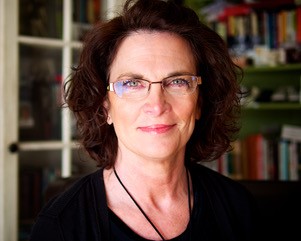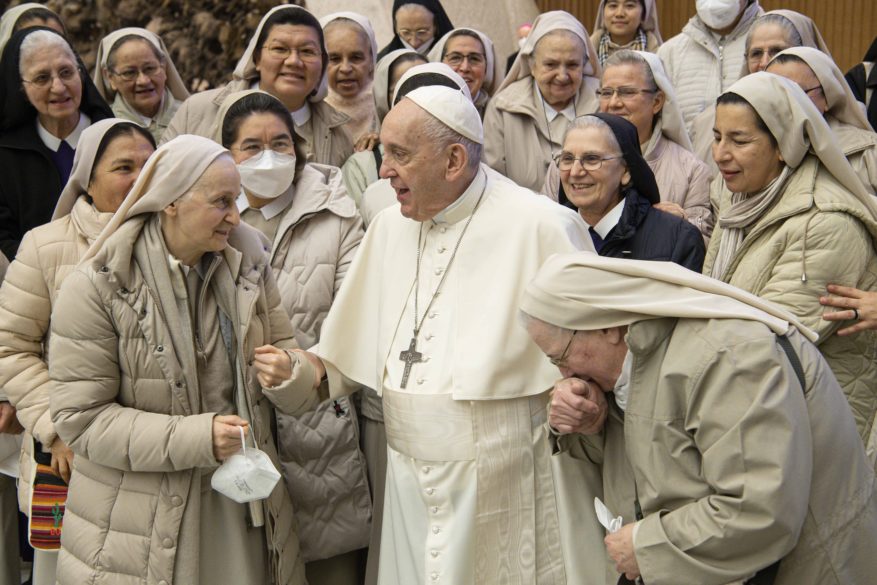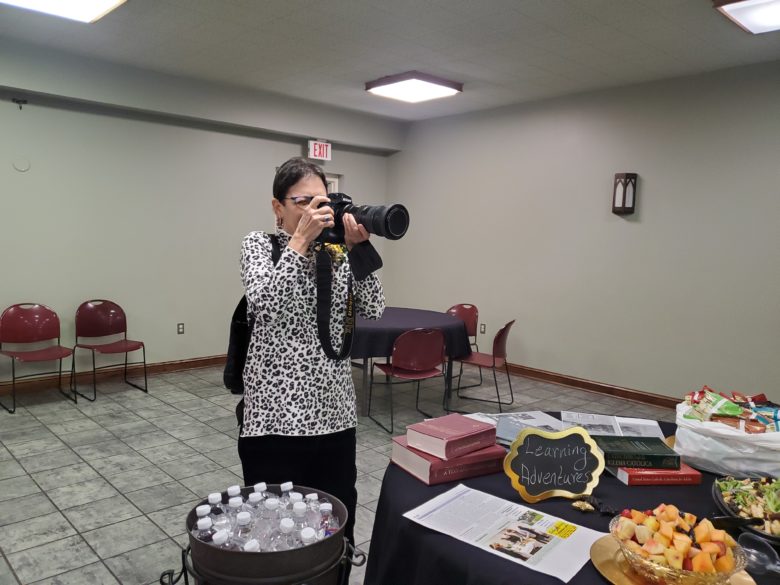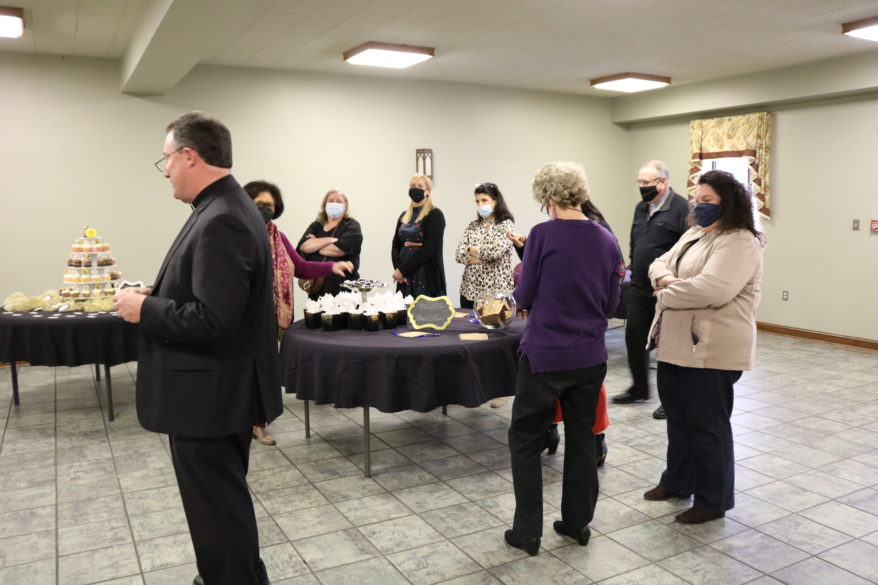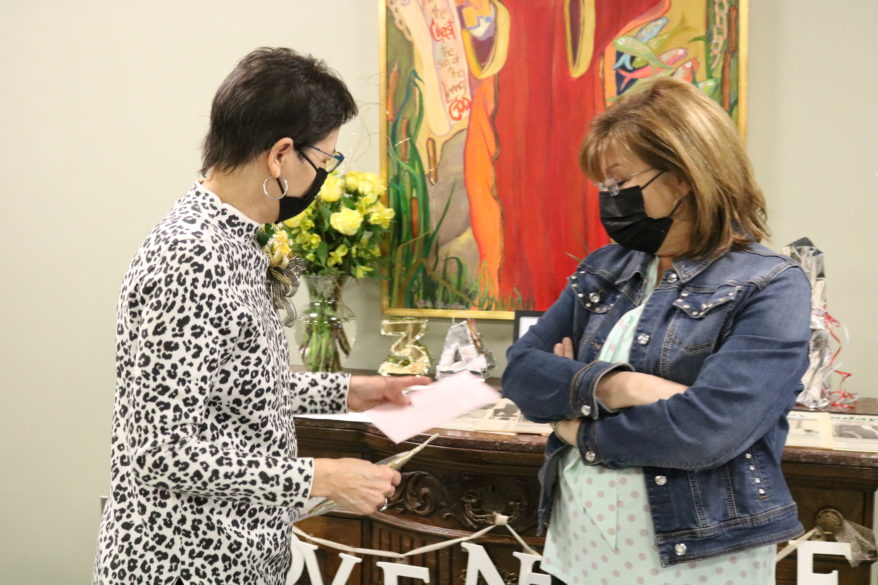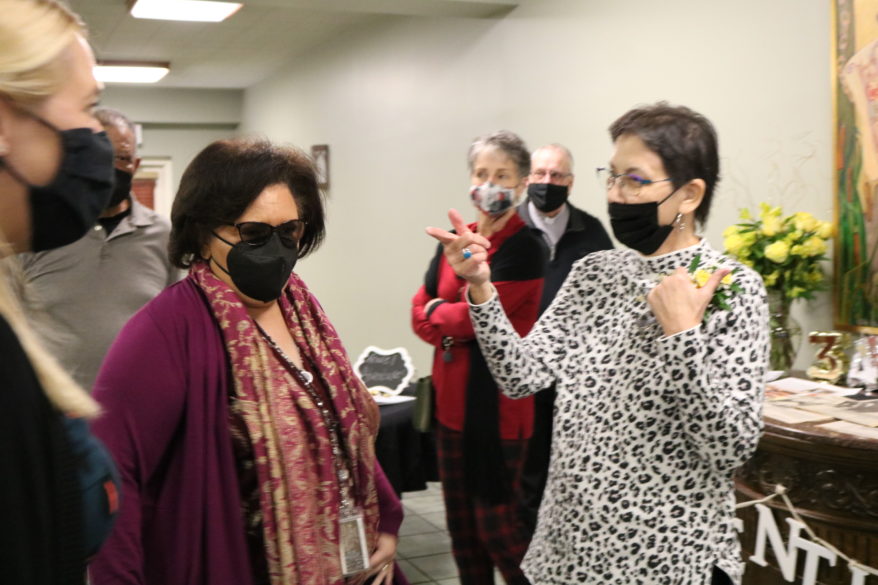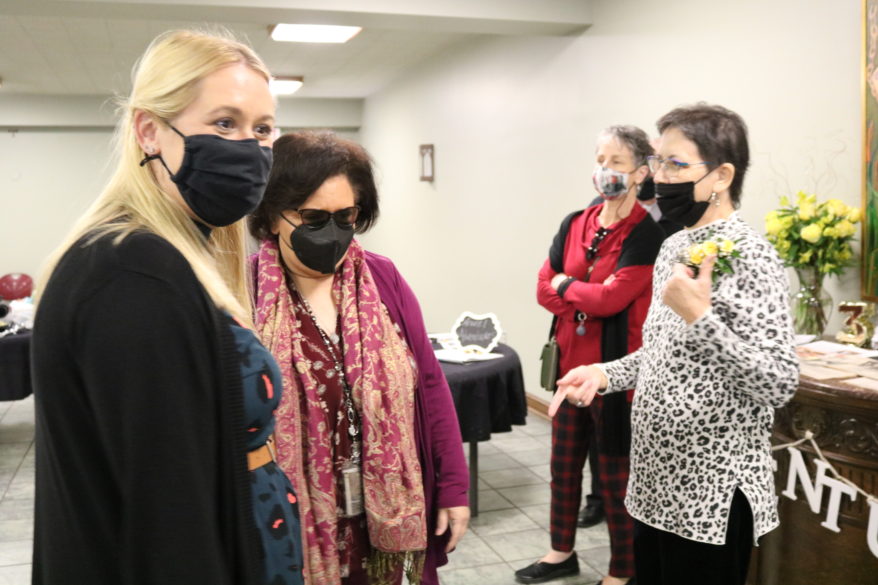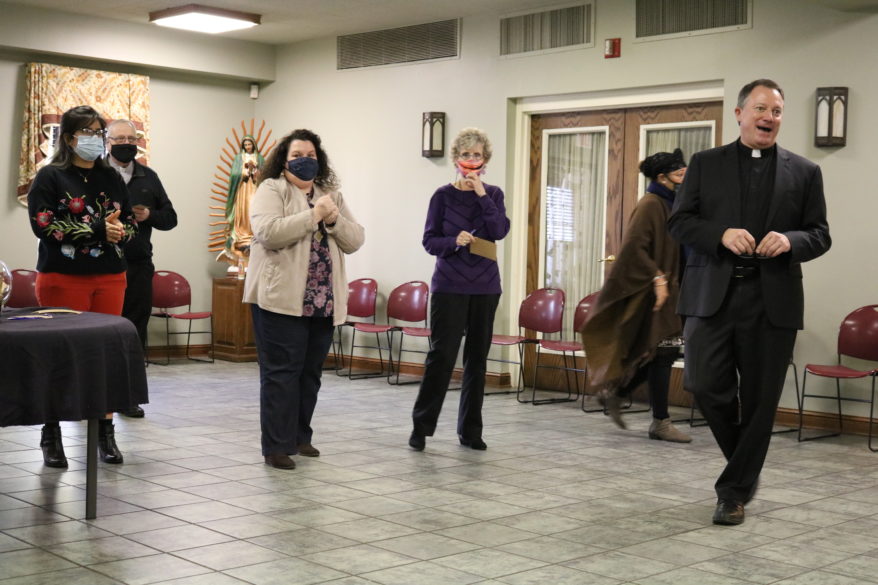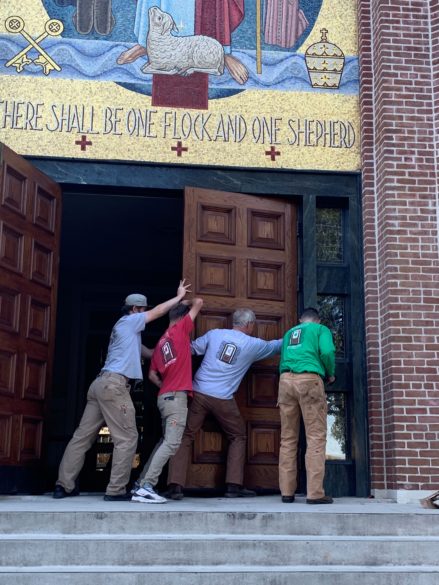By Joanna Puddister King and Laura Grisham
JACKSON – After months of planning, printing material and a bit of prayer, parishes across the diocese are now beginning to host synod listening sessions, as a part of the 2021-2023 Synod of Bishops, titled “For a Synodal Church: Communion, Participation, Mission.”
Each parish in the diocese is tasked with hosting a listening session, and other entities such as schools and youth programs, are encouraged to offer sessions, as well.
During Advent, the diocese director of faith formation and synod lead coordinator, Fran Lavelle and the synod core steam invited groups, including clergy, deacons and LEMs, to go through the listening session process to aid them in planning their own local synodal listening sessions.
“By all accounts, it was a success,” said Lavelle.
Kicking off the parish listening sessions was Christ the King Southaven, that held a listening session for parishioners on Thursday, Jan. 23, with Deacon Ted Schreck as coordinator.
In attendance at the listening session was Elizabeth Clark, who commented that the session was great and “the process was well aligned to get answers that are needed in order for us to grow as a church.”
One thing that really stood out to Clark in the session, and that was the strong desire for community, especially in light of the COVID-19 pandemic. She noted that people are more aware of the isolation of individuals, particularly those who live alone.
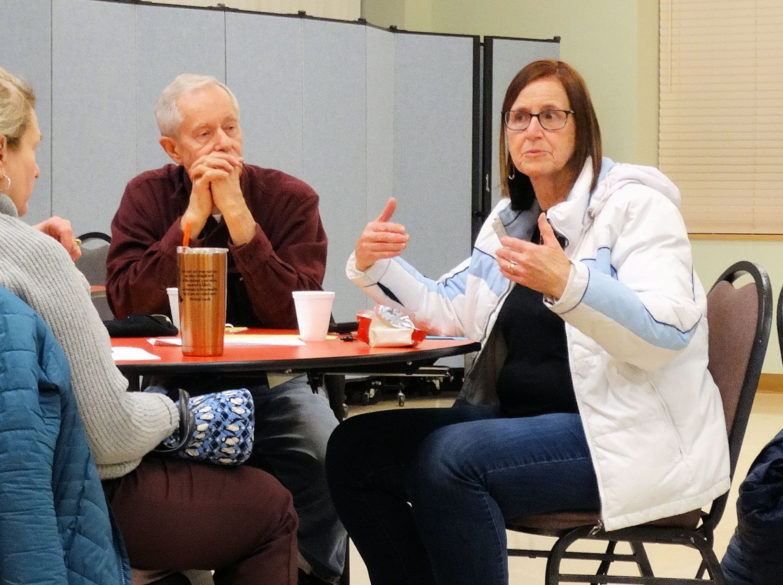
“We are all feeling that isolation and have the desire to come together – to know and share our faith and be Catholic Christians,” said Clark.
Jeff Wallace equally enjoyed the gathering. “It was uplifting to be able to have some input on possible new directions in the church – You felt like you are helping to make a difference, a change in things to come.”
Wallace likened the process as a “spiritual neighborhood watch.” He said that it is “a broad gathering of our church community in which everyone was able to participate and share topics of concern and suggest ways to address them.”
The best part of the session to Leonard Temple, district marshal for the local Knights of Columbus chapter, was “the ability to send a note on what you feel the Catholic Church needs to address or change.”
As listening sessions are held across the diocese, the hope is that thousands filled with the Holy Spirit will take part and allow their voices to be heard.
All sessions are to be completed by March 4, according to Lavelle. “We will continue to monitor the Covid cases and adjust if necessary.”
After materials from each listening session are collected, the feedback will be consolidated into a 10-page report by late April for submission to Rome. From there synodal reports from around the world will be compiled into a larger report.
In the opening Mass for the Synod in October, Bishop Joseph Kopacz stated that the “summary will be made available for the diocese as a very important body of material for our discernment in light of our mission and our ministries.”
In 2023, after the worldwide synodal process, Pope Francis will speak to the church and to the world the essence of what the Holy Spirit has spoken to the church.
For more information on a listening session near you, please check with local parishes for dates and times.



